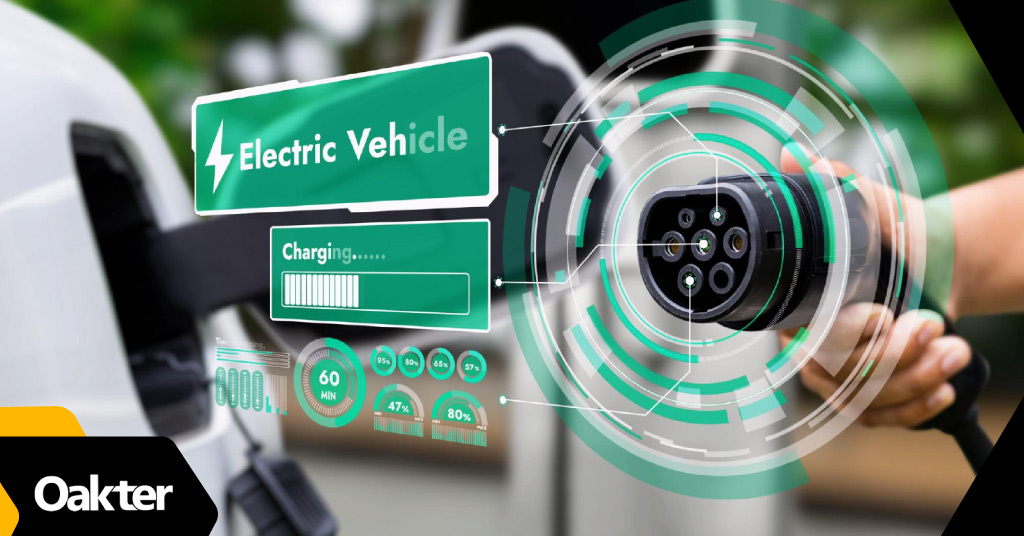
How Battery Management System Companies Are Steering the Electric Vehicle Revolution
The battery is the heart of every electric vehicle. But in recent years, it has also been at the centre of many controversies. We have all heard horror stories about lithium-ion batteries combusting and vehicles burning, causing damage to property, etc.
This is because the battery is a rather complicated and sensitive component and warrants attention and careful handling.
In this scenario, battery management system companies play a transformative role.
In this blog post, we will explore how these innovative companies are at the helm of the electric vehicle revolution and how their advanced battery management solutions are making EVs safer for the consumer.
But first, let us look at what battery management systems are all about!
Understanding Battery Management Systems
To put it simply, a battery management system (BMS) is any electronic system that manages the operation of a rechargeable battery. The BMS is an electronic system that usually:
- Monitors the battery voltage
- Optimizes battery performance
- Estimates the battery’s operational state
- Reports operational status to external devices
- Ensures that the energy storage system operates within safe limits
- Guards against risks like deep discharge
- Prevents overchargingThe BMS system plays a vital role in:
a. Overcharge/ over-discharge of energy
Both of these can shorten the lifespan of a battery and even cause failure. A BMS plays a crucial role by regulating the charging and discharging processes, ensuring batteries neither overcharge nor discharge excessively.
This precise control extends the battery’s lifespan and prevents failures, maintaining optimal performance and safety within the operational limits of the battery.
b. Cell balancing
It helps move energy between cells to align them with respect to the state of charge, allowing the pack to deliver the most energy and power. Cell balancing becomes even more crucial as the battery ages, and differences between cells become more significant.
BMS companies utilise state-of-the-art technology to equalise each cell’s charge, ensuring the battery operates at maximum efficiency despite varying cell characteristics.
c. Monitoring temperature variations across the battery pack
This prevents overheating and optimises thermal management for a longer battery life. By prolonging battery life, battery management system companies contribute to the overall sustainability of the electric vehicle sector, reducing the environmental impact of battery manufacturing as well as disposal.
EV Revolution: The Role of Battery Management System Companies

1. Enhancing Battery Performance and Efficiency
As with everything else, efficiency and longevity are the main aspects of a good battery. Battery management system companies are constantly innovating to improve the performance, efficiency and lifespan of electric vehicle batteries.
The BMS functions like the battery pack’s “intelligence”. It makes decisions based on the information it gathers, hence, the better the BMS technology, the better the battery’s performance and longevity.
BMS companies are continually improving the already sophisticated algorithms and software used to monitor and maintain optimal charge and discharge cycles, which results in a significantly longer battery life.
2. Preventing Battery Failures and Bolstering Safety
Safety is of paramount concern in electric vehicles due to the high voltage and potential risks associated with lithium-ion battery technology. Battery management system companies continually develop new and innovative safety solutions to deal with potential hazards and ensure the safety of vehicle occupants, other road users, and property.
A BMS can monitor the battery’s temperature, voltage, and current flow in real-time and detect potential safety hazards such as overcharging, short circuits, and overheating.
By identifying irregularities in the functioning of the battery, BMS companies can take immediate action to alleviate these risks and prevent catastrophic battery failures. These fail-safe mechanisms, including rapid shutdown, can minimise the likelihood of extremely dangerous situations like thermal runaway etc.
3. Enhancing User Experience
A BMS provides real-time information about the battery’s performance, including:
- Remaining capacity
- Charging time
- Health status
This information is vital as it allows the user to make informed decisions about when to charge the battery or when to replace it.
In addition, depending on the application, a BMS can be customised to the specific requirements of the battery and the user. This allows for greater flexibility and control over the battery’s performance.
A positive user experience makes the EV user’s life easier. In fact, ease of use is critical to creating happy customers in the long term. If EVs are simple to use, not only will people love them, but they will also build confidence and trust.
4. Constant Innovation and Advanced Technologies
Battery management system companies consistently invest in research and development to stay ahead in this rapidly evolving industry. Their pursuit of innovation has led to the development of cutting-edge technologies.
For example, some BMS companies are exploring the use of artificial intelligence (AI) and machine learning algorithms to enable predictive maintenance for EV batteries.
By analysing all the data collected from the battery system, an AI-powered BMS can identify potential issues and schedule maintenance before significant problems occur.
This proactive approach helps prevent unexpected and sudden breakdowns and reduces the need for costly repairs, which further improves the whole user experience and boosts their confidence in electric vehicles.
5. Collaboration and Partnership for Growth
Many battery management system companies have recognised the need and importance of collaboration and partnerships to drive the electric vehicle revolution. They work closely with automobile manufacturers, battery manufacturers, and government agencies to integrate their systems seamlessly into electric vehicles.
Collaborations also allow BMS companies to align their technologies with industry standards and government regulations, ensuring compatibility and interoperability.
By improving integration, these collaborations enable more and more consumers to adopt electric vehicles, which contributes to the growth of the entire EV ecosystem.
Final words
In conclusion, due to their continuous innovation and dedication to battery health, battery management system companies have become instrumental in improving performance, extending the lifespan, and enhancing the overall safety of electric vehicle batteries.
Oakter leads the electric revolution with our premium chargers, which are compatible with a wide array of EV models, and a steadfast dedication to customer satisfaction.
Discover more about our extensive collection of EV chargers and identify the ideal charging solution for your electric vehicle.
If you are part of the EV revolution, let’s collaborate! Get in touch with us!

